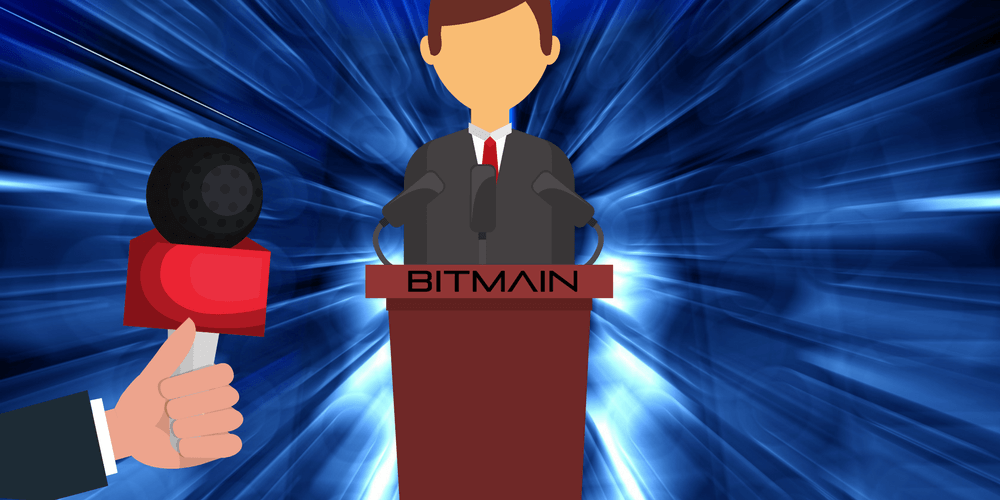
While Bitmain is one of the most important companies in the Bitcoin industry, not many people realize the company has two CEOs. Most of the public statements over the years have come from Jihan Wu, and less is known about Micree Zhan, who is the more technically-inclined of the two.
In a recent interview with CoinJournal, Zhan shared his thoughts on Segregated Witness (SW), Bitcoin Unlimited (BU), the role of miners in the ecosystem, and much more.
CoinJournal: Not many people in the Bitcoin community (at least outside of China) know much about you. What is your background and how did you get into Bitcoin?
Micree Zhan: I am an electronics engineer and before co-founding Bitmain, I ran a startup that was also related to [integrated circuit] design. In 2013, Jihan introduced Bitcoin to me and, after spending about two hours to understand its basic idea, I knew it was the right thing to do.
CJ: What is your main role at Bitmain? I’ve heard you are the technical guru.
MZ: Yes, I focus on the products and the engineering departments at Bitmain.
CJ: What do you think about Bitcoin Unlimited’s concept of emergent consensus? Should the miners activate this change? Is this something the users should support?
MZ: We know that bitcoin block size is reaching its 1M limit, and many proposals were introduced to remove this limit. BU’s emergent consensus is one of these good solutions. So far, emergent consensus is getting more and more support in the community. I believe emergent consensus is easier and more feasible than SW and that many miners will activate it.
I believe Bitcoin users should support BU too because BU provides another Bitcoin protocol implementation code. The basic consensus and value of Bitcoin is its unique ledger, not the unique code from Core.
CJ: Did Bitcoin.com’s recently mined invalid block due to a bug in Bitcoin Unlimited change your thinking on Bitcoin Unlimited and/or emergent consensus?
MZ: No. As an engineer, I don’t think there is a software product without bugs. Fortunately, this bug caused only a small loss. We should support good alternative Bitcoin protocol implementations to make the Bitcoin network stronger. When there are various implementations on the network, a bug from one implementation will only affect some of the nodes, not all nodes. In addition, when a bug of one implementation is active, the nodes will have a choice to change to another implementation. When a bug is active, emergency activity and leadership of the developers becomes important. I believe that the BU developers did a good job in timely solving this problem, just as the Core developers have previously done.
CJ: What do you think about Bitcoin Core’s Segregated Witness proposal? Should the miners activate this change? Is this something the users should support?
MZ: SW is a very smart idea, and it will be helpful for Bitcoin. However, SW is a little complicated, and the community need more time to evaluate and test it. I don’t think it is safe to activate it today.
CJ: Are there block size limit proposals unrelated to Bitcoin Unlimited and Segregated Witness that you would support?
MZ: I prefer BU for now.
CJ: What do you think about proposals to increase the block size limit through the use of extension blocks? Is that something you would support or do you think it has the same sort of complexities found with SegWit?
MZ: Many good solutions for scaling the block size have been proposed in the community and these solutions include those of extension blocks. The solution of extension blocks is beautiful from a technical view. However, many such solutions have lost support and, I think, it is often not because of any technical issues with these solutions.
CJ: There seems to be a debate over the role of miners on the Bitcoin network. Some say they should only react to the desires of users, while others say they should lead and implement changes proactively. What is your view on this issue?
MZ: I think we shouldn’t put the burden of any of these moral decisions on miners. The most important thing for miners is the economic benefit of mining. Mining is a marvelous design for Bitcoin generation and Bitcoin network stability. The higher the number of miners and the higher the network difficulty, the safer the Bitcoin network becomes. As long as the number of miners who are mining for their economic benefit keeps increasing, the Bitcoin network will continue to be safer. In 2016, we created an open-source Bitcoin mining pool BTC.com in order to make mining simpler and more efficient.
CJ: If miners should not have the burden of moral (protocol?) decisions, then shouldn’t miners be signaling for SegWit? Roughly the entire Bitcoin ecosystem seems ready for SegWit (Coinbase, BTCC, Blockchain.info, Xapo, etc).
MZ: Bitcoin is a wonderful and complicated system where all players (users, miners, exchange platforms, developers, and so on) have different interests. According to Satoshi’s original idea, it is important for miners to benefit from mining. Actually, miners invest considerable financial and other resources into their mining operations for the mining reward. I believe that they will consequently select SW or BU based on their interest i.e. to increase the block size, to make Bitcoin more popular, to get more transaction fees.
CJ: Feel free to share any other thoughts related to Bitmain or Bitcoin.
MZ: At Bitmain we will continue to try our best to make Bitcoin healthier and stronger.
Note: The order of questions from this interview has been rearranged for continuity.

